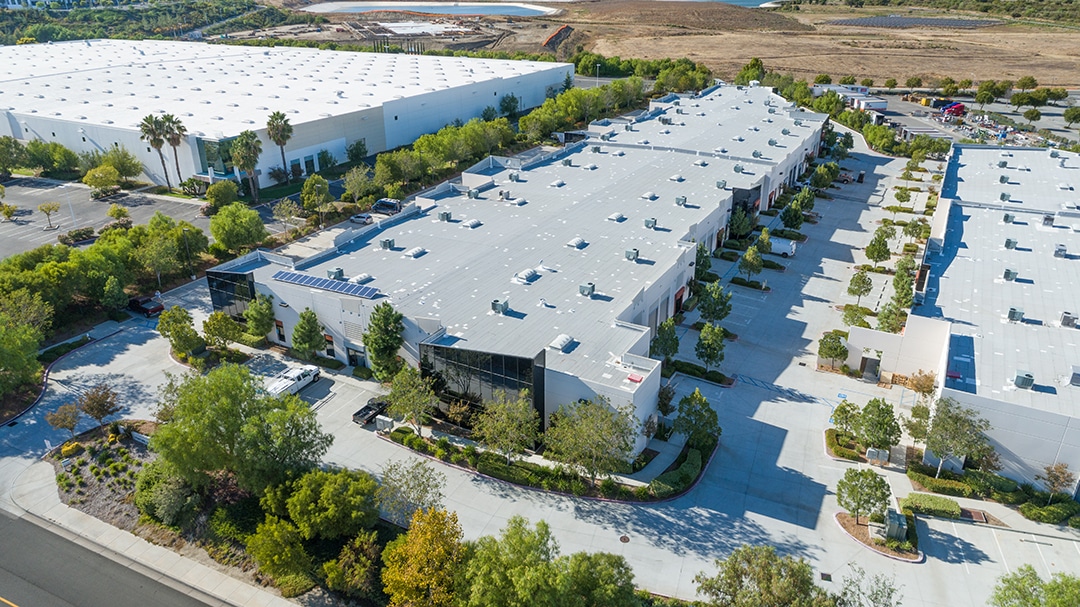The roof of your commercial building is more than just a protective layer; it’s a vital component that safeguards your investment, ensures occupant comfort, and even contributes to energy efficiency. In today’s dynamic construction landscape, modern commercial roofing applications offer a plethora of options to meet diverse needs and budgets.
Whether you’re managing a sprawling warehouse, a bustling retail complex, or a sleek office tower, understanding the latest advancements in commercial roofing is crucial. This article delves into the key aspects of modern roofing systems, exploring popular materials, innovative technologies, and crucial considerations for informed decision-making.
Understanding the Commercial Roofing Landscape
Commercial roofs differ significantly from their residential counterparts in terms of design, materials, and installation. Primarily, commercial roofs are categorized into two main types based on their pitch or slope:
Low-slope roofs: These roofs have an incline of less than 20 degrees, making them ideal for large, flat buildings like warehouses, factories, and shopping centers. Popular low-slope roofing materials include single-ply membranes (EPDM, PVC, TPO), modified bitumen, and built-up roofs (BUR).
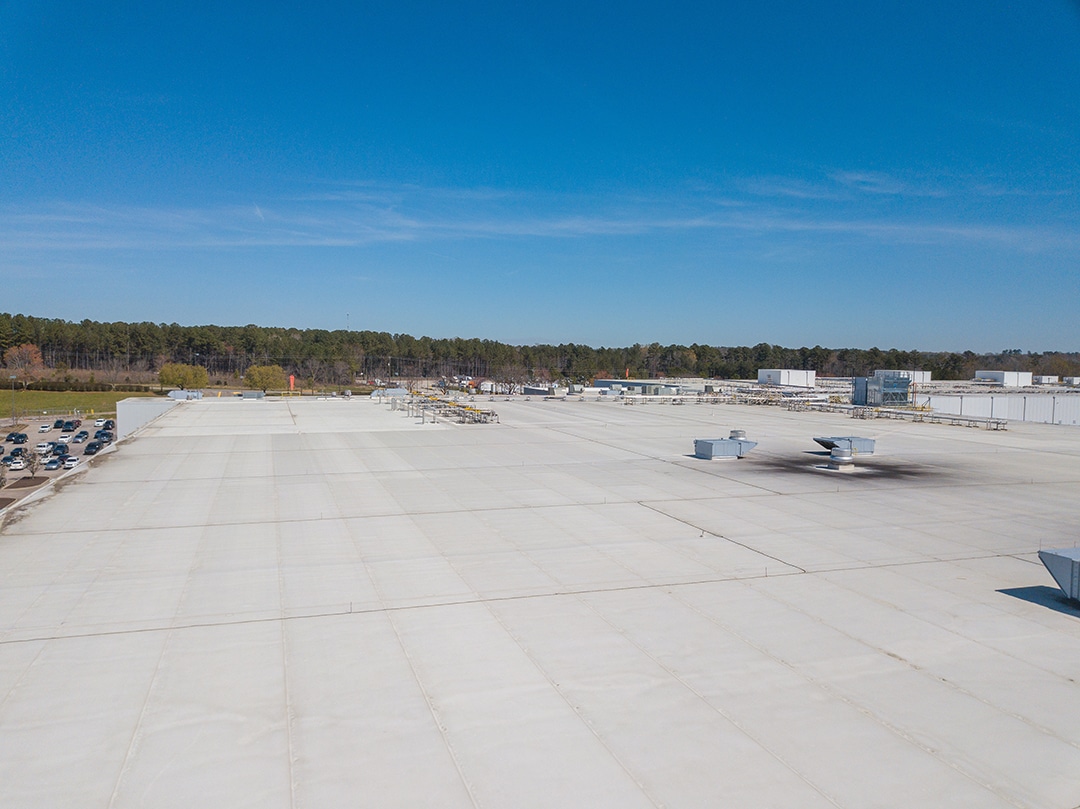
Steep-slope roofs: With a pitch exceeding 20 degrees, these roofs are commonly found on office buildings, schools, and historical structures. Metal roofs, slate tiles, and concrete tiles are frequently used in steep-slope applications.
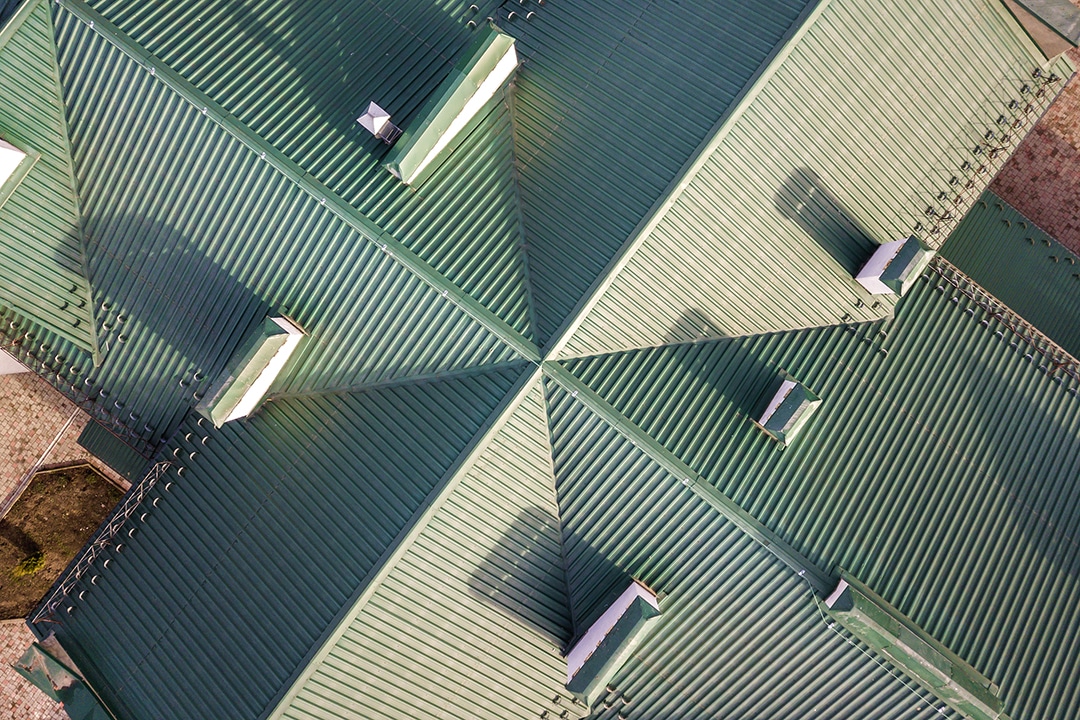
Material Matters: Exploring Modern Roofing Options
The material you choose for your commercial roof will significantly impact its performance, longevity, and overall cost. Here’s a closer look at some of the most popular options:
Single-ply membranes: These lightweight, flexible sheets offer excellent waterproofing, puncture resistance, and energy efficiency. EPDM, PVC, and TPO are the most common types, each with its unique advantages and suitability for specific climates and budgets.
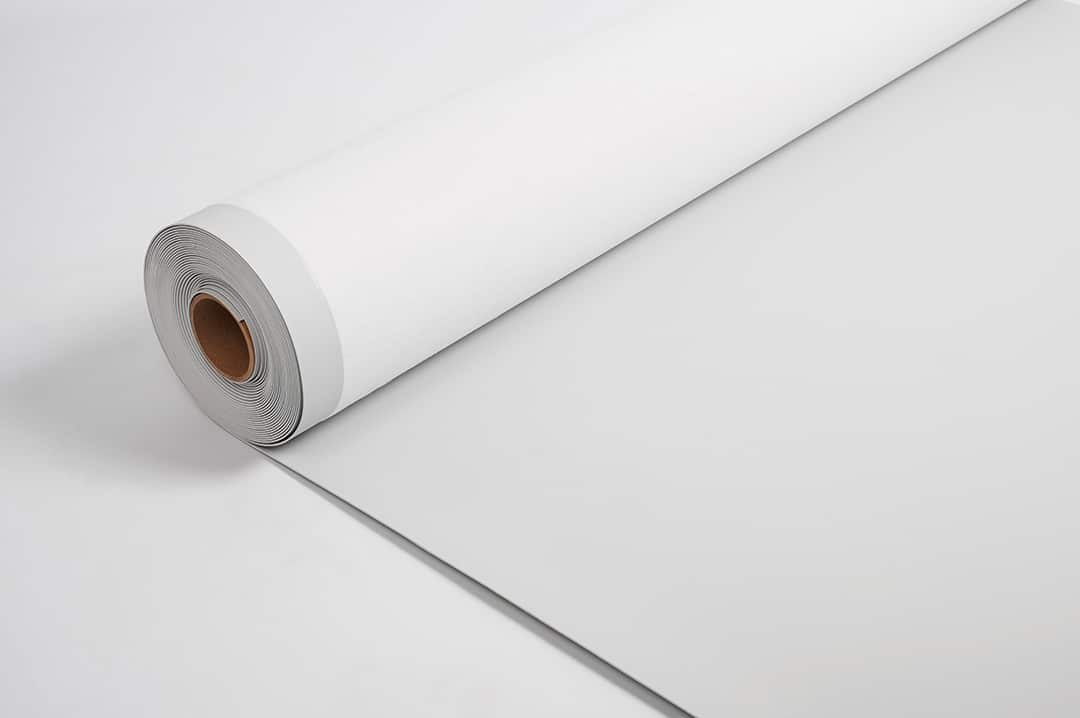
Modified bitumen: This multi-layered system utilizes asphalt and reinforcing fabrics to create a durable, weatherproof barrier. Modified bitumen roofs are known for their affordability, ease of repair, and resistance to ponding water.
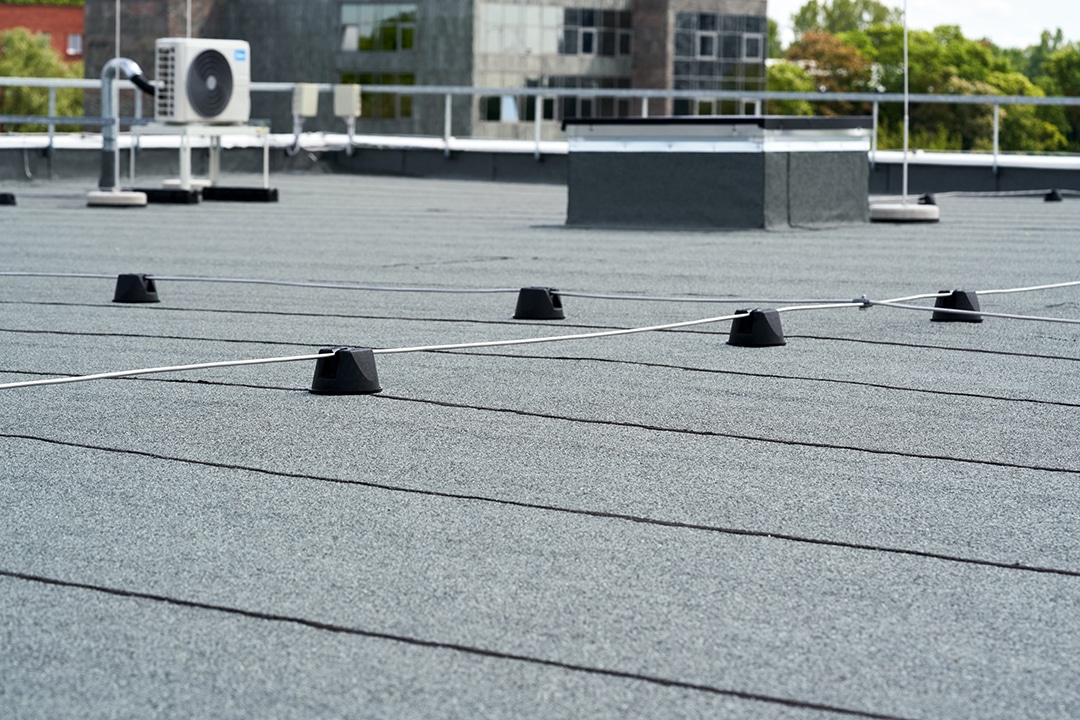
Built-up roofs (BUR): A traditional roofing system consisting of multiple layers of asphalt and reinforcing materials, BUR roofs offer exceptional durability and longevity. However, their installation is complex and requires skilled professionals.
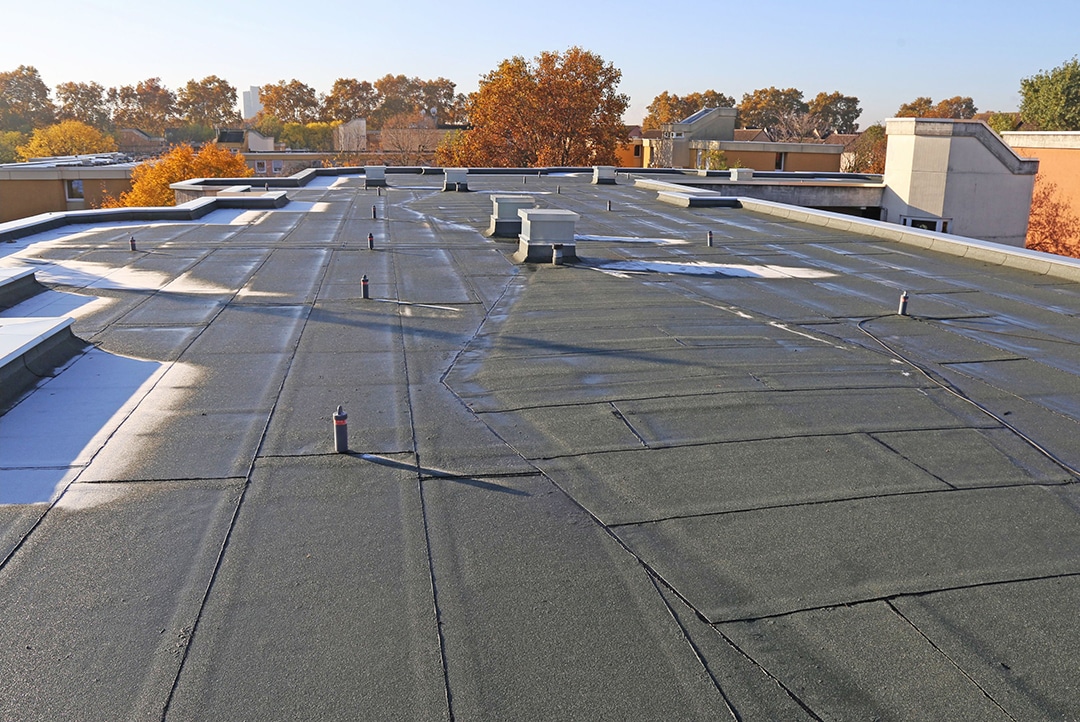
Metal roofs: Available in various styles and finishes, metal roofs are renowned for their longevity, resilience, and sustainability. They reflect heat efficiently, contributing to lower energy costs, and are virtually maintenance-free.
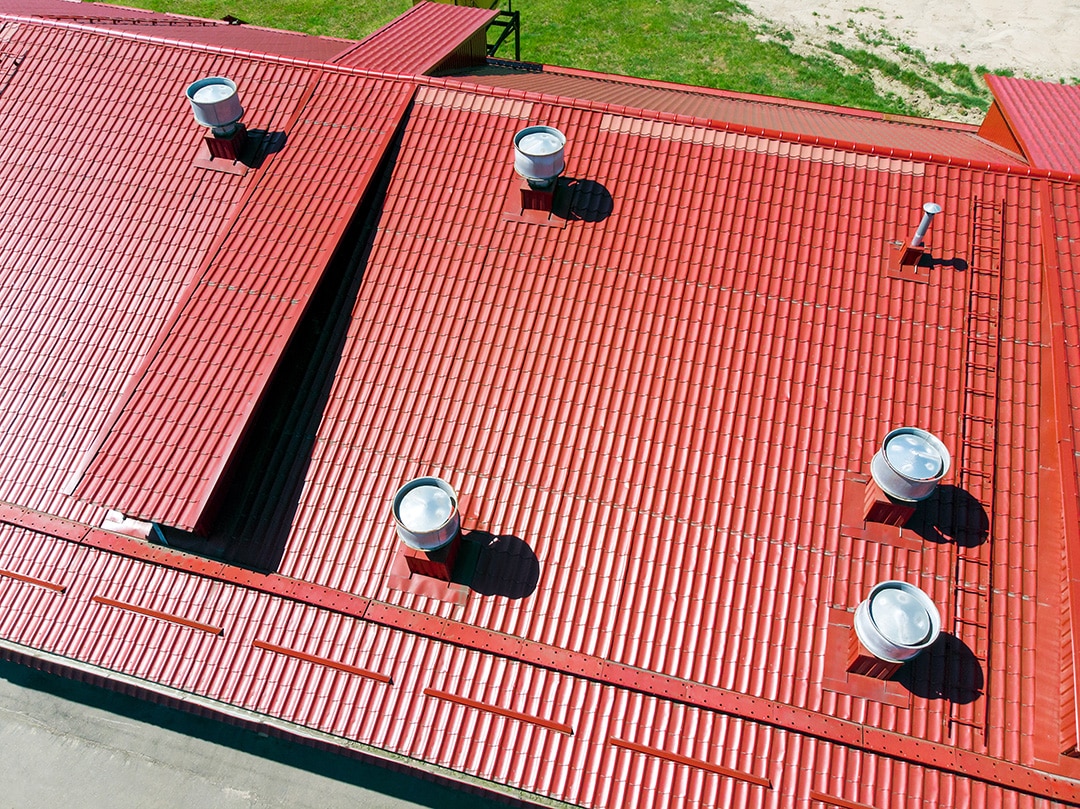
Slate and concrete tiles: These premium materials offer unmatched aesthetic appeal and exceptional longevity. However, their installation is labor-intensive, and they come with a higher price tag.
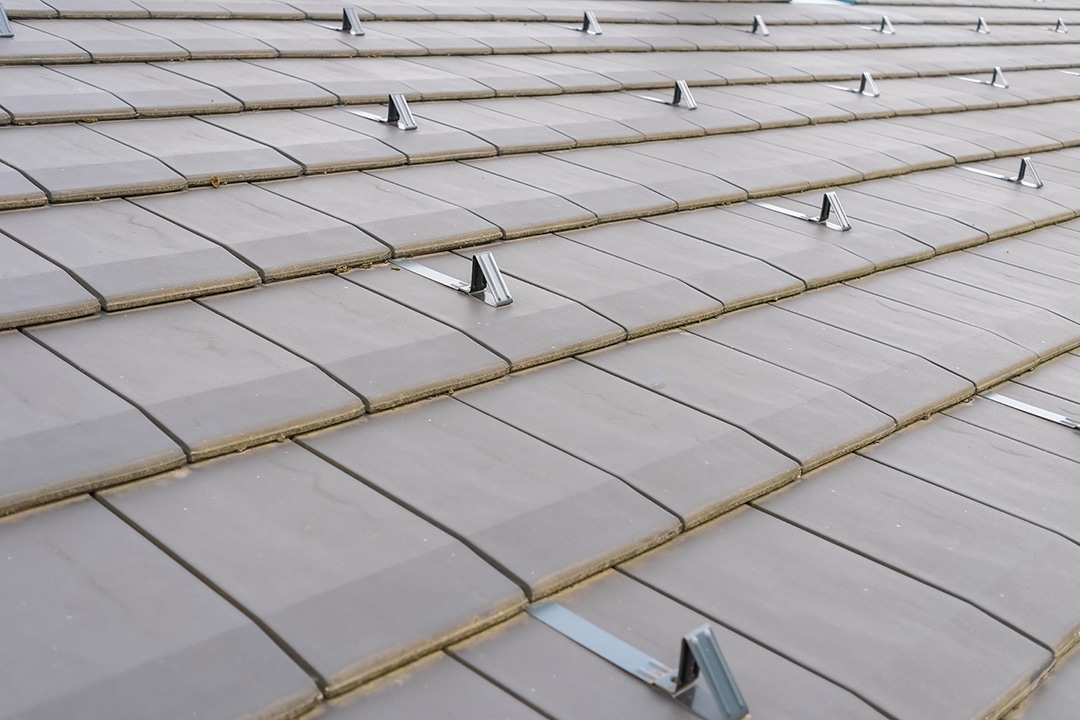
Beyond the Material: Innovative Technologies in Commercial Roofing
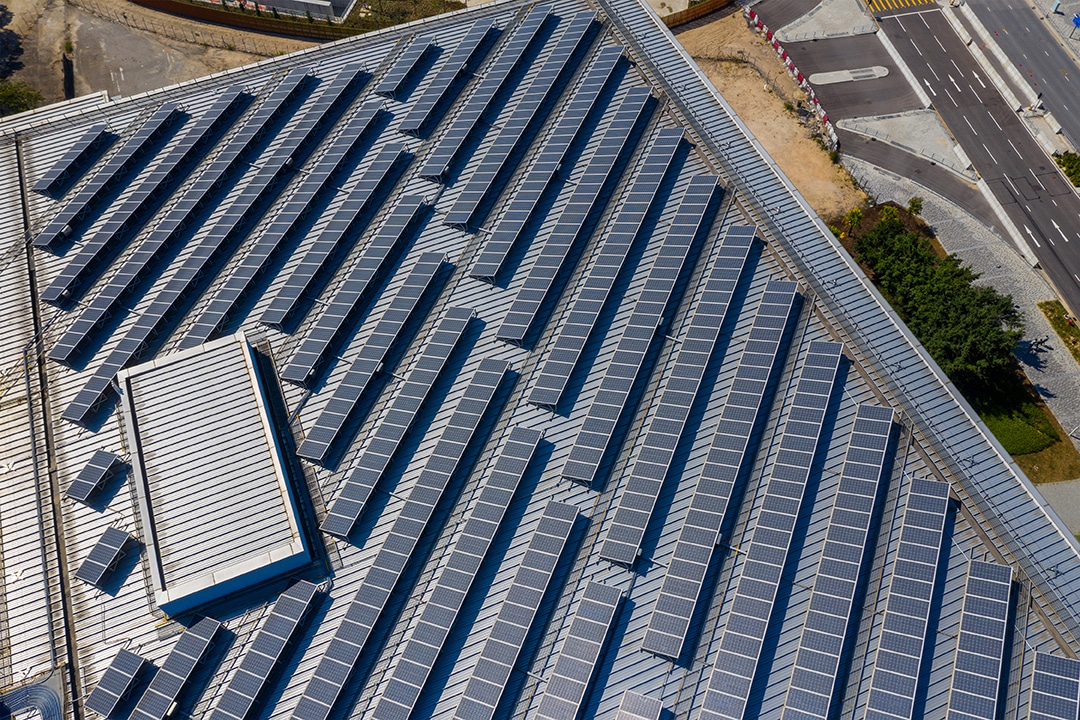
Modern roofing advancements extend beyond materials, incorporating cutting-edge technologies to enhance performance and functionality. Some noteworthy examples include:
Cool roofs: These roofs utilize reflective pigments or coatings to minimize heat absorption, reducing cooling energy consumption and contributing to building temperature control.
Green roofs: Vegetated roofs provide insulation, stormwater management, and improved air quality while offering unique aesthetic and ecological benefits.
Solar roofs: Integrating photovoltaic panels into the roofing system allows for harnessing solar energy for electricity generation, reducing reliance on conventional power sources.
Making Informed Decisions: Key Considerations for Choosing a Commercial Roofing System

Selecting the right roofing system for your commercial property requires careful consideration of several factors:
Building type and usage: The size, shape, and intended use of your building will influence the most suitable roof design and material choices.
Climate and weather conditions: The local climate, including precipitation, temperature extremes, and wind load, plays a crucial role in determining the appropriate roofing system.
Budget and lifespan: Roofing systems vary considerably in cost and lifespan. It’s essential to choose a system that aligns with your budget while offering the desired level of durability and performance.
Maintenance requirements: Different roofing materials have varying maintenance needs. Consider the time, resources, and expertise required for ongoing upkeep.
Energy efficiency and sustainability: Opting for energy-efficient materials and technologies can contribute to cost savings and environmental responsibility.
Conclusion: Investing in a Future-Proof Commercial Roof
Your commercial roof is a long-term investment that safeguards your property and occupants. By understanding modern applications, materials, and technologies, you can make informed decisions to choose a roofing system that delivers optimal performance, durability, and value throughout its lifespan.
In Golden Valley, Minnesota, Allweather Roof stands as a trusted partner in navigating the complexities of commercial roofing. With nearly a century of experience and expertise in every type of roofing system, their team of dedicated professionals offers comprehensive services, from expert consultations and meticulous installations to reliable repairs and proactive maintenance.
Whether you’re envisioning a cool roof for enhanced energy efficiency, a green roof for environmental benefits, or a sleek metal roof for lasting resilience, Allweather Roof can guide you towards the ideal solution. Their commitment to quality, coupled with their in-depth knowledge of local weather conditions and building codes, ensures a future-proof roof that protects your investment for years to come.
Contact Allweather Roof today and experience the difference of partnering with a roofing company that prioritizes your complete satisfaction. Let their expertise guide you towards a roof that not only safeguards your building but also complements its unique character and contributes to its long-term success.


